archive
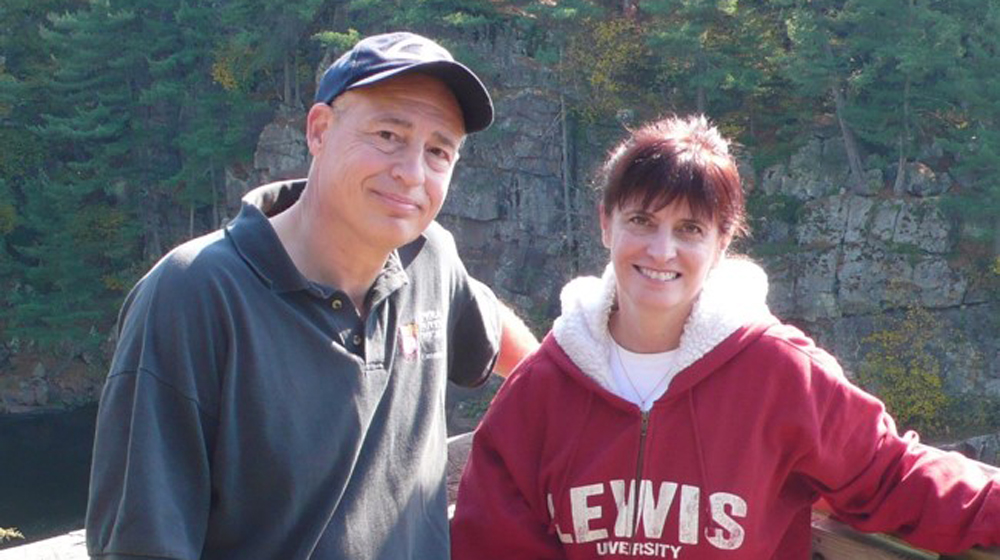
"Civil War Chicago: Eyewitness to History" on October 20th
Professor of History Theodore J. Karamanski, PhD and Loyola alumna Eileen M. McMahon, PhD, will discuss their new book on the Civil War’s transformative role in Chicago's development.
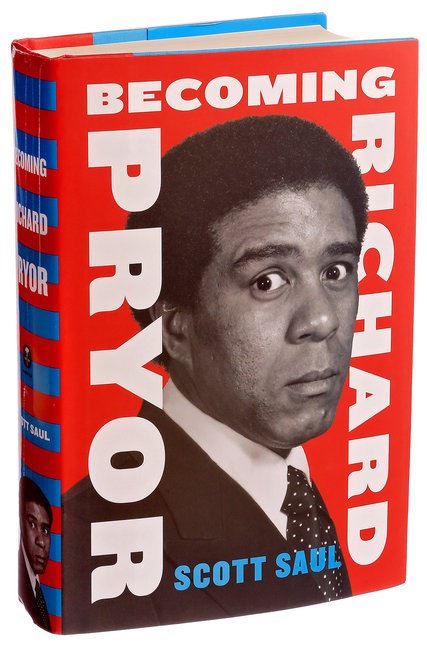
Richard Pryor Biographer to Speak at Loyola
Scott Saul, the author of Becoming Richard Pryor, will give a public lecture on the comedian entitled "Living with Richard Pryor: A Biographer's Tale" on Friday, April 24 at 3 PM.
Timothy Gilfoyle on "The Changing Forms of History"
Should history be a book discipline? What constitutes "acceptable scholarship" in history? Professor Timothy Gilfoyle considers the rich and diverse forms that historical scholarship take from books, digital media, and public history projects in his article "The Changing Forms of History" in April's edition of Perspectives on History, the AHA newsmagazine.

"The Rise of the Nation-Saint" on November 5th
Prof. Kathleen Sprows Cummings, University of Notre Dame, discusses a pre-circulated paper on the efforts of U.S. Catholics to secure their first canonized saint for the third meeting of the 2015-2016 Ramonat Seminar Series.
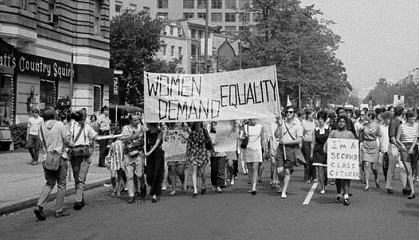
Voices of Chicago Women Activists
Celebrate Women's History Month with the Women & Leadership Archives and the Chicago Area Women's History Council. Come hear multimedia excerpts of oral histories by Columbia College honors students featuring Chicago women activists and leaders. The event will be held on Sunday, March 16th from 2:00pm-5:00pm on the 1st floor of Piper Hall.

What was Chrysler Village and how did it get its name?
Public History graduate students know and shared their work on a historic nomination for the neighborhood with Ask Geoffrey on WTTW the other night.
LEARN MORE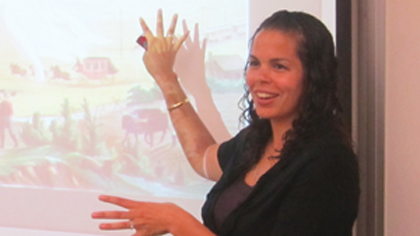
Closing the Gap
Sarah Doherty (PhD '12) reflects on the importance of the Preparing Future Faculty Program in equipping her, and other minority doctoral students, with the skills necessary for a career in academia.
LEARN MOREAtlantic Research Earns Di Lorenzo Newberry Residency
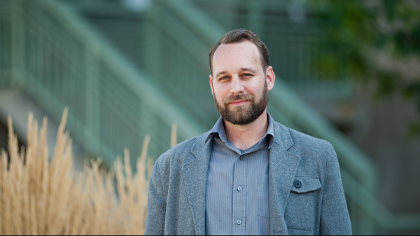
Photo by Myles Ostrowski
This academic year, Anthony Di Lorenzo, PhD candidate in History, is using his time as a Graduate Scholar-in-Residence at the Newberry Library to research and write his dissertation on the influence of radicals and anti-slavery advocates on democratic politics in the early United States. Anthony's research has taken him to archives on both sides of the Atlantic to recover the important, but largely forgotten, history of Atlantic abolitionism during the American and French Revolutions. In coming back to Chicago, Anthony has joined the international community of scholars that gather each year at the Newberry to use their important collections and to share their scholarship. PhD candidate Nathan Jérémie-Brink recently caught up with Anthony on his work, his exciting findings, and what it’s like to do research at the Newberry.
Give us an overview of your scholarship, and how you came upon this fascinating research topic.
In my undergraduate study of political theory, I became fascinated by the ways abstract principles and philosophies impacted the founding of the United States. I pursued graduate degrees in history to investigate how these ideas were put into practice. Often, I found, there was a disconnect between rhetoric and reality -- but it was also clear that ideas profoundly shaped how people perceived their experiences and had the power to move individuals in unexpected ways.
My current research project reflects this realization. I focus on a time of dramatic and rapid revolutionary change. Within this period I assess the extent to which radical notions of “liberty” and “equality” impacted those most oppressed -- the enslaved. The French Revolution created profound rifts in the United States, not only in partisan politics, but also among those challenging the institution of slavery. I show the importance of these ideological and political divides, as they diminished the efficacy of the antislavery movement and the window of opportunity to end slavery quickly closed.
How have faculty and your graduate program here at Loyola helped you explore this subject?
Key mentors at Loyola have shaped my thinking and research on the subject. My advisor, Dr. John Donoghue, encouraged me to explore intellectual history (and history in general) “from the bottom up.” Rather than focusing primarily on elites, attention to how common people shaped events and ideas has been my focus. Professor Donoghue's scholarship on abolitionist thought and radical politics in the seventeenth century has also informed my dissertation’s study of a later period. Beyond my advisor, a number of faculty have offered helpful direction, including Dr. Kyle Roberts, who consistently reminds me to look for tangible transatlantic connections -- seeking out textual communities and networks of communication between radicals. This advice has led to some significant findings that I may not have otherwise uncovered.
What historical methods does your dissertation employ?
I seek to place American popular politics in the 1790s, in general, and the abolitionist movement, in particular, within a broad Atlantic context. While my focus is on the early United States, I've found that it is impossible to comprehend the events of the period without careful attention to developments in Great Britain, France, and the Caribbean. Moreover, focusing only on the texts of elites will only get you so far. Exploring the activities and ideas of ordinary people requires the study of culture -- including associational activities, institutional structures and material culture.
How important is the Newberry Library's archive in supporting your work?
The Newberry is an exceptional institution with a plethora of resources for my project. Their holdings include extensive pamphlet collections from both the American and French Revolutions, numerous rare books, and manuscripts from early abolitionists. Among these texts, memoirs and treatises from this period have proved invaluable for my research. We at Loyola are incredibly lucky to have this collection in our own backyard.
It must be exciting to connect with the Newberry's wonderful community of scholars. How does it feel to be a resident scholar at the Newberry?
The Newberry is a vibrant place. Something is always going on, whether it be a Fellow's Forum, seminar, or book talk. Even lunch in the lounge provides opportunities to connect with other scholars from all over the world. It is truly a privilege to be part of such a tradition of scholarly excellence and my own work will undoubtedly benefit from the experience.
To this point, what have been some of your most exciting finds?
Each day in the archive seems to reveal another important source. One discovery that stands out is a letter to George Washington from an abolitionist in Liverpool. After praising Washington for his patriotic service to the “great family of mankind” during the American Revolution, he lambasts him for continuing to hold slaves. This document encapsulates both the transatlantic focus of my project and the inconsistency of chattel slavery with the ideals of Atlantic radicals.
How might your current fellowship and work as a Graduate Scholar-in-Residence at the Newberry help you achieve your long term goals for your research and for your vocation?
It will accelerate progress toward finishing the dissertation and provide a strong source base for an eventual book project. I hope to share these ideas both through publication and in the university classroom. I’ve even successfully incorporated some of my primary source findings into my current teaching, which I take as a strong sign that I'm moving in the right direction!
